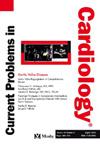An artificial intelligence-informed proof of concept model for an ecological framework of healthy longevity forcing factors in the United States
IF 3.3
3区 医学
Q2 CARDIAC & CARDIOVASCULAR SYSTEMS
引用次数: 0
Abstract
Unhealthy lifestyle behaviors are a doorway to downstream health consequences characterized by the following: 1) poor quality of life and diminished mobility; 2) increased likelihood of chronic disease risk factors and diagnoses; and, ultimately, 3) a shorter lifespan and healthspan. The aim of the current study is to assess if an ecological framework can predict U.S. lifespan via the use of artificial intelligence. The current study utilized several U.S. county-level datasets representing the predictive variables of the ecologic framework. A non-linear artificial intelligence statistical approach was used to assess the ability of these variables to predict life expectancy, death rate, and years of life lost. The R² values demonstrated that the performance of Extra trees models was different across the three outcomes, however, death rate always exhibited the highest R² for each feature number, indicating superior model accuracy for this outcome. Generally, an increase in the number of features led to improved model performance. Variables from all factors included in the proposed ecological framework were retained in the final predictive models. There is a need to understand why individuals/families/community, connected by shared cultural beliefs, decide to make one lifestyle behavior decision over another.
美国健康长寿强迫因素生态框架的人工智能知情概念验证模型。
不健康的生活方式行为是下游健康后果的一个入口,其特征如下:1)生活质量差,活动能力减弱;2)慢性病危险因素和诊断的可能性增加;并最终缩短寿命和健康寿命。当前研究的目的是评估生态框架是否可以通过使用人工智能来预测美国人的寿命。目前的研究利用了几个美国县级数据集,代表了生态框架的预测变量。使用非线性人工智能统计方法来评估这些变量预测预期寿命、死亡率和寿命损失年数的能力。R²值表明Extra trees模型的性能在三个结果之间是不同的,然而,死亡率对于每个特征数总是表现出最高的R²,表明该结果的模型精度更高。通常,特征数量的增加会导致模型性能的提高。在最终的预测模型中保留了包含在拟议生态框架中的所有因素的变量。我们需要理解为什么个人/家庭/社区,在共同的文化信仰的联系下,决定做出一种生活方式的行为决定而不是另一种。
本文章由计算机程序翻译,如有差异,请以英文原文为准。
求助全文
约1分钟内获得全文
求助全文
来源期刊

Current Problems in Cardiology
医学-心血管系统
CiteScore
4.80
自引率
2.40%
发文量
392
审稿时长
6 days
期刊介绍:
Under the editorial leadership of noted cardiologist Dr. Hector O. Ventura, Current Problems in Cardiology provides focused, comprehensive coverage of important clinical topics in cardiology. Each monthly issues, addresses a selected clinical problem or condition, including pathophysiology, invasive and noninvasive diagnosis, drug therapy, surgical management, and rehabilitation; or explores the clinical applications of a diagnostic modality or a particular category of drugs. Critical commentary from the distinguished editorial board accompanies each monograph, providing readers with additional insights. An extensive bibliography in each issue saves hours of library research.
 求助内容:
求助内容: 应助结果提醒方式:
应助结果提醒方式:


